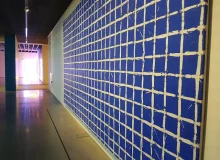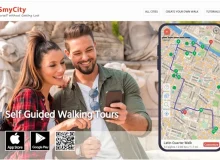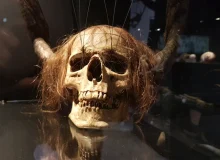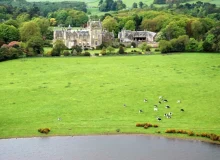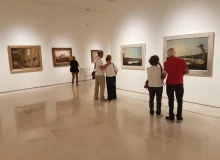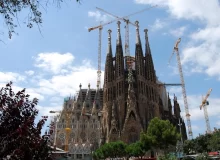Opening the Atlas
Mike Gerrard visits the village of Aremd in the Atlas Mountains of Morocco and discovers what impact tourism can have on the villagers’ way of life.
Satellite dishes in the Atlas Mountains? It wasn’t what I expected to find in the village of Aremd, a base for trekking into some of the most stunning scenery in Morocco. Multi-coloured rugs and blankets hanging out to dry, donkeys clopping through the stony streets, the sound of a muezzin calling people to prayer – yes. But ugly new white satellite dishes on the roofs and walls of these old brown mud houses? What a sight. And in a way I was responsible for them being there.
I was travelling with a tour company, Tribes Travel, whose founder, a former overland truck-driver named Amanda Marks, has the strange notion that we should all be prepared to pay more for our holidays – provided we knew some of the money was going directly to the local communities we visited, and being put to good use. In the case of Aremd, 7.5 percent of the holiday cost, and another 7.5 percent from Tribes’ Moroccan partners, was going directly to Aremd to provide fresh water and electricity supplies. ‘
‘If we stay here as visitors,’ says Abdul Charhbourn, our Moroccan guide, ‘then we should help the village.’ Of course we should, I thought, but when I arrived I started to have reservations. Electricity means TV, then satellite TV with its hideous dishes, more money for Mr Murdoch, perhaps pornography beamed into this Muslim community, the destruction of a traditional way of life…
Or did it? The villagers themselves had a different perception of it all. Take the water supplies, as a reservoir above Aremd means that fresh treated water is available from fountains throughout the village. What was it like before, I asked Mohammed, a villager who works with tour groups as a guide and a cook. ‘Before,’ he explains, ‘there were big problems with the water. In summer there may be no water at all.
In winter the weather can be so bad that it may not be possible to go out to collect snow for as long as three days. The water was not good. There were many health problems. People are healthier now. Before, people would wash their clothes and blankets in the river, and then other people would take the water for drinking. There was nothing else you could do, it was the only source of water.’
Abdul tells me that since facilities in the village have improved, thanks to tourism and direct financial support for these projects, family life is much stronger. ‘Before, the young people would leave to try to find work in Marrakech, because there was nothing for them here. The village was dying. Now they stay, because they can get jobs in tourism, they can have TV and radios. Families are staying together instead of being split apart.’
And the effects of satellite television, I ask Abdul, are they beneficial? ‘Of course,’ he says without hesitation. ‘My own father used to be ignorant before television, but is now much better educated because of what he has seen. And there is an 80-year-old man I was talking to here in Aremd, who said that thanks to the television, he will have seen beyond the mountains before he dies. He said that before he was blind, and now he can see.’




